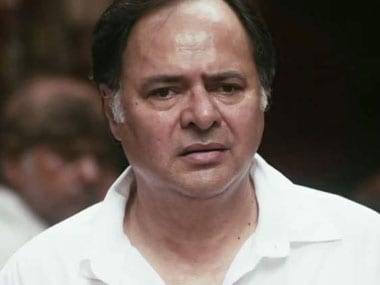By Gautam Chintamani Many actors, some greater than most, have portrayed the aam admi in Hindi cinema. Some of them were trained thespians, some stumbled upon brilliance, some had author backed roles while some made do with almost nothing. From Raj Kapoor’s loveable tramp in the 1950s to Shammi Kapoor’s rebel rouser of the 1960s, to Amitabh Bachchan’s Angry Young Man in the 1970s and finally the Amol Palekar-Naseeruddin Shah’s office going simpleton there have many memorable avatars of the aam aadmi, but at closer inspection of each of them falls short in front of the ones created by one most unlikely contender — Farooq Shaikh. Among the sea of actors Farooq Shaikh was to the manor born, yet managed to create some of the most grounded everyman. Graduating from theatre to cinema in 1973 with MS Sathyu’s classic Garam Hava, Shaikh managed to create innumerable versions of the common man in films like Gaman (1978), Noorie (1979), Umrao Jaan (1981), Chasme Baddoor (1981), Saath Saath (1982), Bazaar (1982) and Katha (1983). What makes this list more impressive is the fact that all these films happened in a short span of just ten years since Shaikh’s debut. [caption id=“attachment_1312205” align=“alignleft” width=“380”]  Farooq Shaikh. Ibnlive[/caption] Interestingly, as varied as Shaikh’s characters could have been – migrant laborer, nobleman, college student, and a loveable imp — they always remained on the periphery never really becoming a part of the whole. Was this a facet of the actor who portrayed them? An unlikely star, Shaikh like most of his characters always lurked on the margins of what was becoming to be identified as Bollywood and never felt at ease to cross over and still was at home in everything he did. Right from his first performance Shaikh, who could easily be called the first major star of the parallel cinema movement that ran along Amitabh Bachchan’s meteoric Angry Young Man rise, rarely let his success to hamper his roles. Therefore unlike Palekar’s portrayal of the everyman or Naseeruddin Shah’s depiction of the common man Shaikh’s characters never looked stale or repetitive. More importantly he never let the viewer’s acceptance compel him to take his characters for granted. Those who knew Shaikh often said that there wasn’t anyone quite like him. Many of his characters imbibed a certain earnestness that was truly a facet of his own persona and this honesty made his roles shine brighter. For a decade between 1997-2007 Shaikh didn’t do any films and rather than ‘selling out’ like Om Puri and Naseeruddin Shah, and even cribbing or criticising the very films that made him like the latter, Shaikh found solace in television. A consummate artist who was unperturbed by the platform or the length of the role, Shaikh was in fact one of the first actors to balance films and television (Srikant, Chamatkar, Ji Mantriji). He even returned to theatre with Tumhari Amrita that co-starred Shabana Azmi and was performed over 300 times. Popular Hindi cinema can be a very unforgiving place for leading men and women and Shaikh, too, suffered the lack of author-backed roles after a while. Unlike the so called commercial stars, the so-called art house actors continue to do films that rarely challenge them and while Shaikh had a tough time in the 1990s and early 2000s, he managed to initiate what was turning out to be a noteworthy second coming. In the five years before his death Shaikh acted in 8 films that largely revolved around him and he even managed to play characters in Lahore (2009) and Shanghai (2012) that one wouldn’t ideally associate with him. Hindi cinema is going through what could be its most curious phase and in times such as these where one can imagine a film like Listen… Amaya (2013), a romance between a fifty-something widow and a sixty-something single man (Deepti Naval and Farooq Shaikh in a sweet revisit of yesteryears) or a Club 60 (2013), a middle-aged (Shaikh and Sarika) couple grieving over the loss of a child, the loss of one it’s finest artists would be unquantifiable. Through his performances Farooq Shaikh conveyed the story of an average man and his death makes the everyman everyone seemed to have forgotten truly memorable.
Through his performances Farooq Shaikh conveyed the story of an average man and his death makes the everyman everyone seemed to have forgotten truly memorable.
Advertisement
End of Article
Written by FP Archives
see more


)
)
)
)
)
)
)
)
)



